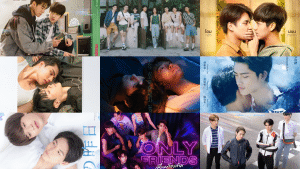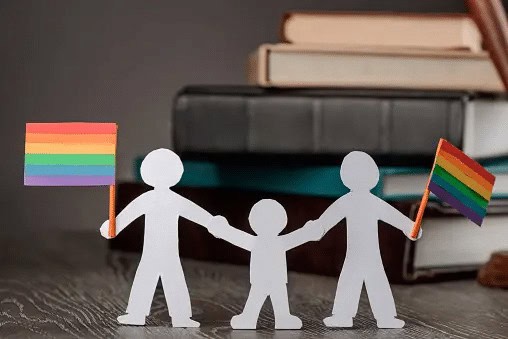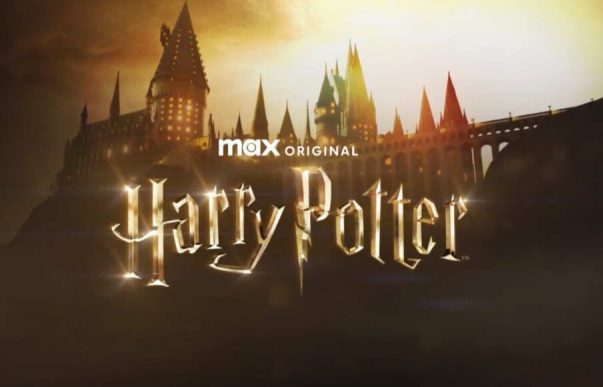International LGBTQIA+ Shows See Impressive Growth in Popularity
In the West, more and more movies and TV shows have been migrating to formats that increase diversity in roles and storylines. It is now not uncommon to find various wide-ranging plots and characters centering around the growing market for LGBTQIA+ content. To capitalize on the shifting tide of social acceptance and the normalization of this inclusion, studios big and small are making a concerted effort to promote inclusivity, proving that there is a profitable and desired market for such content.
Many argue, however, that the West has fallen behind the international LGBTQIA+ entertainment industries. And, in many aspects, that opinion is quite valid. Unlike the industries in the USA and the UK, the market for queer stories across the world is booming. Pulling down record profits and garnering a following that transcends language, religion, politics, and social status; to the point that the genre has become a staple in several countries’ global soft power and a significant contributor to their GDP.
Geographical Significance
In places like Thailand, Japan, Taiwan, and South Korea, the “Boy’s Love” (BL) genre has become an enthusiastic focus for many production companies. In a bid to increase its international reach and appeal; and to grow the profitability of said genre; Thailand has been the one country to hit the ground running and take it upon itself to be at the forefront of this growing trend. Steadily releasing hit after hit, to international acclaim, and jumpstarting the genre’s popularity throughout Asia, their full-steam-ahead approach to production has put pressure on surrounding countries to capitalize on its potential.
In 2023, Thailand released nearly fifty television dramas solely focused on romantic BL plots, with the other countries contributing around twenty additional properties: Bringing up the total number of BL television dramas released in Asia, to over eighty individual series alone. While these numbers are impressive, they do not include the more than two dozen other shows released from countries like the Philippines, Vietnam, and even Myanmar -where many aspects of being LGBTQIA+ are still very much illegal
Boy’s Love (BL)

It is not uncommon for members of the LGBTQIA+ community to have a passing understanding of what Boy’s Love entails, given the decades-spanning longevity that the genre has previously cultivated. In the early years of its expansion outside of Japan, misconceptions often tainted the public’s view of the genre.
Boy’s Love was, and is still, seen as a less-than-tasteful medium, where queer stories are badly told and riddled with stereotyping, fetishization, and subject matter that many would find offensive. These assumptions, however, are far from true in the modern day; and actively negate the huge strides the genre has taken in the last decade to be more inclusive, sex-positive, uplifting, grounded, and true-to-life.
Contemporary Boy’s Love shows and movies have evolved, shifting from those problematic and stereotypical tropes that once plagued every iteration of queer stories. So much so, that “typical” tropes are no longer typical. Authors and creators of such works, thanks to the advancement in LGBTQIA+ rights and education across the globe, have become dedicated to eliminating those harmful stereotypes and misconceptions often associated with queer media in general. They focus more on stories with core values of positive emotions and good storytelling, rather than perpetuating ideas that belittle or disparage the queer community.
Variety
Unlike the properties coming out of Western productions: variety is, quite literally, the spice of life in the international market. Not just in terms of storylines, but also with casting, characters, plots, moralities, and messaging. Do you want to watch a show that’s enemies-to-lovers? One about a stoic and cruel mob boss finding his softer side after meeting his new bodyguard?
A fantasy story about a cold detached lord of light, in a world of magic and swords, falling for a playful and mischievous master of the demonic arts? Or even something as simple as two people meeting, on some random day and having an instant connection?
Boy’s Love has all of that, and more. There has also been a huge shift in how characters are portrayed and by whom.. While it’s still not uncommon for straight actors to be put in such roles, the industry has made strides to increase inclusion and diversity. In Thailand, alone, there are dozens of popular, active, and out queer actors in the industry.
Not to mention the hundreds upon hundreds of LGBTQIA+ staff, producers, managers, writers, and directors, standing just behind the camera lens and contributing to the productions’ success. All with the mission to tell real queer stories that can uplift and entertain, not only a queer audience but the masses at large.
Availability

In general, it’s not uncommon to hear complaints that Western production companies and distributors don’t see or believe in the potential benefits of portraying LGBTQIA+ stories or their profitability. This lack of understanding continues to contribute to the exclusion of queer representation in mainstream media and exacerbates the continuing efforts of the public to seek their entertainment elsewhere.
And this is where the Boy’s Love industry comes waltzing in with a smile and a wave. Deliberately reaching out, internationally, to all those fans out there that are just not getting what they want or need from productions in the West and saying: “Look what we have for you.”
Unlike in the West, wherein queer-centric shows and movies are scattered to the four winds, East and Southeast Asian additions to the global LGBTQIA+ zeitgeist are specifically offered through avenues that are (in many cases) extremely convenient. Many Boy’s Love productions do not hide their content behind a paywall.
Every year, between forty to sixty percent of new shows are deliberately offered on free services, like YouTube, to reach a global audience. While also simulcasting the same shows in their “Uncut” form (meaning: long form with extra scenes) on a few paid streaming services, like WeTV and iQiyi.
Where to watch:
While these services have made it convenient for fans of queer stories to find the content they’re looking for, a few lesser-known streaming services have taken it even further. WeTV and iQiyi carry different shows and movies; like the inclusive format of sites like Netflix, where no genre is specifically highlighted over any others. Forcing viewers to hunt for the shows they are looking for, through thousands of titles, rather than being right there the moment the page loads.
To circumvent this, a company based out of Taiwan created a streaming service; called GagaOOlala; whose sole purpose is to be a centralized site for all things LGBTQIA+ related. Offering, nothing but queer movies and television shows, from multiple countries and languages, all on one platform. All with English subs; and are offered at two separate price points: free access and a paid subscription with a cost equivalent to a typical Starbucks coffee.
For More Great Content
Are you desiring top-tier content that covers everything? From thrilling sports and intoxicating entertainment news to gaming tips and professional betting advice, Total Apex covers it all. Delve into our no-fluff articles to stay ahead of the game with the latest sports action, uncover the hottest trends in entertainment, and get the latest scoops in the gaming industry that will take your experiences to the next level.
Finally, our betting advice will give you a decisive edge over the competition and increase your odds of beating the books. Whether you’re looking to stay updated or gain a competitive edge, Total Apex is your one-stop shop for all things compelling and relevant. Don’t forget we cover Fantasy Sports, too!
Check out all our sites: Total Apex Sports, Total Apex Fantasy Sports, Total Apex Entertainment, Total Apex Sports Bets, and Total Apex Gaming. Out of the ashes of obscurity will rise a beast. Always remember to Respect The Hustle! Follow us on Twitter/X @TotalApexSports to stay informed.







